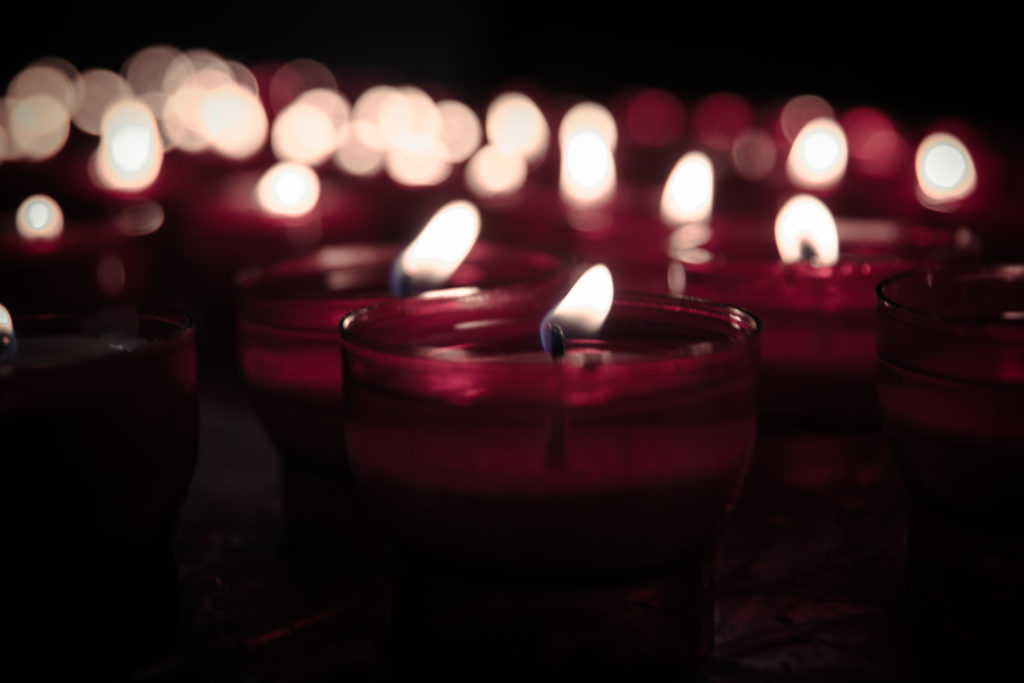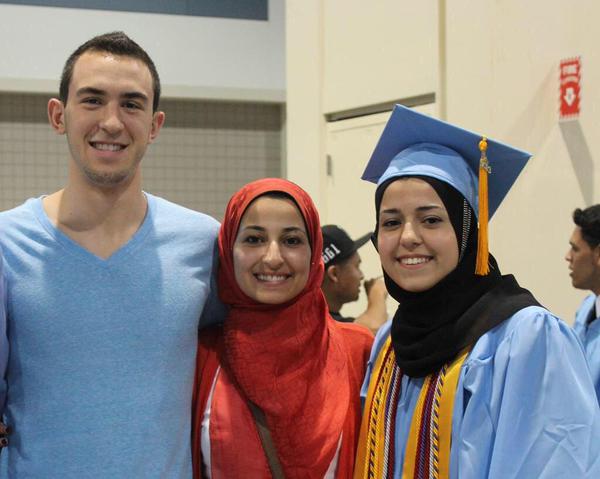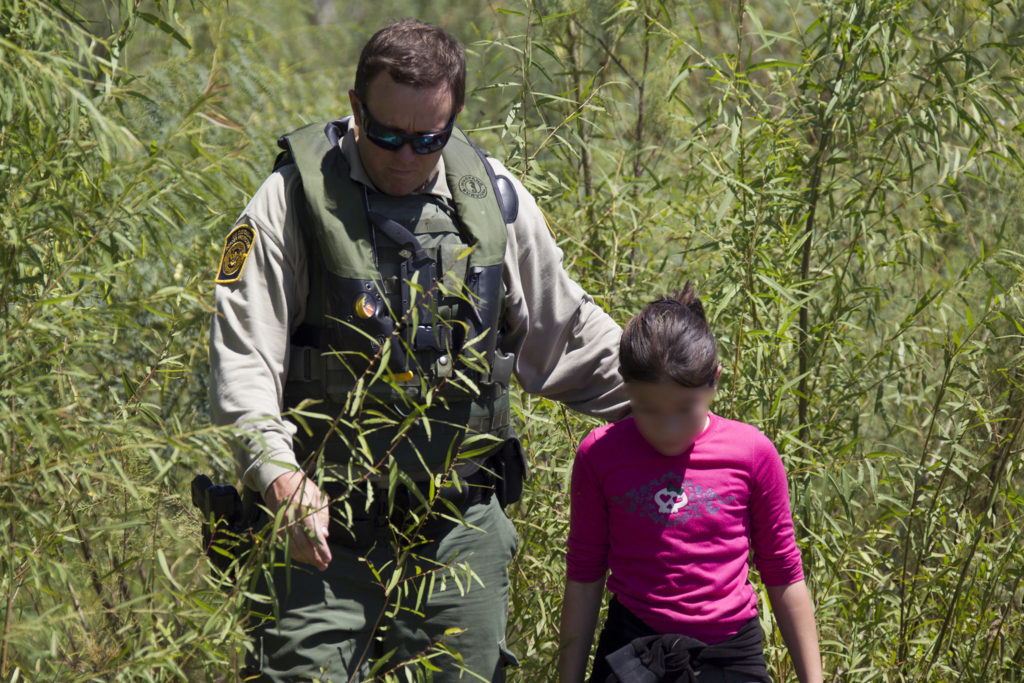Search results for: syria
Humanist Disaster Recovery: A look forward to 2016
2015 saw a huge number of disasters and, according to statistics, those numbers aren't likely to go down in 2016. The question is, what does that mean for those in the humanist community who wish to help? Our challenge moving forward is two-fold. First, we challenge ourselves to find local organizations working on the ground,…
Read MoreTake Action Toward Unity
The attacks in Paris, Beirut, and Baghdad last week have left the world reeling and many people scared. In light of that fear, some American politicians are attempting to fight against this country’s already limited support of the refugees fleeing Syria. Foundation Beyond Belief condemns these political attempts to turn away those in need and…
Read MoreFBB Hits $2 million mark in funds raised and distributed
Foundation Beyond Belief is proud to announce that it has reached the $2 million mark in funds raised and distributed to charities in the United States and around the world. In addition to small grants in the $10,000 range to dozens of organizations during that time, that total also includes larger Compassionate Impact Grants to…
Read MoreFBB drive in honor of the Chapel Hill shooting victims raises $20k
DONATE FBB has been collecting funds to support the Syrian American Medical Society Foundation (SAMS) in honor of Deah Shaddy Barakat, Yusor Mohammad, and Razan Mohammad Abu-Salha, three college students tragically killed in Chapel Hill, North Carolina. We originally planned to close the drive on February 17, but due to continuing interest and support, we…
Read MoreFoundation Beyond Belief announces new Small Grant awardees
Our Small Grants program was recently revamped to allow us to identify organizations and programs that were either not being funded by our Humanist Giving Program, or were being underfunded. The process of choosing an awardee begins with nominations from our staff and board members. Next, the Humanist Giving staff researches and evaluates nominated programs…
Read MoreAn update from Cure Violence
Cure Violence was our featured Human Rights beneficiary for the third quarter of 2013. Here’s an update from Cameron Johnson, Cure Violence’s associate director of development, about violence-prevention work they are currently doing in Syria. Cure Violence envisions a world without violence. Reducing violence on a global scale through the use of disease control and…
Read MoreFoundation Beyond Belief adapts a fluid approach to beneficiary selection
 By AJ Chalom, Humanist Giving Program Coordinator
By AJ Chalom, Humanist Giving Program Coordinator
Foundation Beyond Belief launched the Humanist Giving program in 2010. Over time, we have slowly evolved our process of selecting each quarter’s beneficiaries. We take this process very seriously, since the beneficiaries we support, feature, and partner with say as much about Foundation Beyond Belief as our mission statement.
We maintain a large selection of nominated and interesting charities in our charity database (many of which were nominated by members and our community). Each quarter, a list of priority charities is compiled in each of the five beneficiary categories: Poverty and Health, Education, Human Rights, the Natural World, and Challenge the Gap. We also support charities through our Small Grants and the Humanist Crisis Response program.
Criteria that staff and interns concentrate on when vetting are (in no particular order):
- Religious Affiliation: We make every attempt to ensure that the charity exemplifies the values of compassionate humanism and is not affiliated with any religious organization (except in the case of Challenge the Gap nominees). In the Challenge the Gap category, we search for liberal religious and interfaith organizations that share our values, do not exclude people from their services based on religion, and do not proselytize during their charitable operations.
- Size: Currently, we only consider charities with a yearly budget of no more than $50 million (except for Crisis Response), although we attempt to find meaningful organizations with a mid-sized budget of less than $5 million so that we can make the greatest impact with our donations. In 2013, we supported an organization with a $40,000 yearly budget (Water Ecuador, a Pathfinders Project host and clean water project) and one with a $400 million budget (International Rescue Committee, the beneficiary for our Syrian refugee Humanist Crisis Response drive).
- Efficiency and Quality: We emphasize quality review and scientific data to support the organization’s efforts. We look for a charity that has a strong, external review of their process. We also look at strategic plans, past performance, and internal reviews to help us determine this important quality. We take advantage of multiple websites doing reviews of effectiveness for different programs. Beneficiaries that were particularly strong in this area include Apopo and 350.org.
- Financial Stability: There is new research supporting the concept that having high salary rates among top staff at an organization is an asset for charity selection due to the organization’s ability to attract and keep quality staff in the nonprofit sector. When FBB staff look at an organization’s financial documents, we look at the stability or growth of income, a healthy reserve, and a reasonable approach to professional fundraising, ensuring fundraising expenses are effective to raise money for the organization and do not exceed about 25-30% of the budget maximum.
- United Nations Millennium Development Goals: In 2013, we began to analyze our past beneficiaries in terms of how they support the UN Millennium Development Goals. You can learn more about the UN Millennium Development Goals on our blog. Particularly with organizations working abroad, we try to ensure we are addressing a broad range of these goals in our beneficiaries.
- The Intangibles: Is an organization updating its web presence? Are its projects innovative? Will our members connect with the mission of the beneficiary? We ask these questions particularly while narrowing down finalists in a category.
- Request for Proposal process: New for 2014, we are developing a Request for Proposal (RFP) process, inviting previously vetted organizations to send us a proposal asking for support for a particular program. We have already released the Human Rights and Natural World versions of the RFP. We are using this strategy to pinpoint specific projects that our prospective beneficiaries need extra support to continue, or new initiatives that are not fully funded. We are inviting organizations that have interested our staff, but that we feel we need more information about before we fund them. Our debut RFP beneficiary is the Ali Forney Center, in the Human Rights category.
Along with these research areas, we seriously take into account staff and intern comments to make final recommendations to our Board of the Directors, who in turn approve the final slate of beneficiaries each quarter.
Members, if you’d like to adjust your donation allocation for our new first-quarter slate of beneficiaries, click “Manage Donation” on the right side of the page.
Read More“It’s too much” — looking back at a year of crisis response
By AJ Chalom, Humanist Giving Program Coordinator
This year, Foundation Beyond Belief’s Humanist Crisis Response program was on a roller coaster, frequently called upon to respond to the constant trials facing our world. Crisis response is not something we at FBB want to do—but we need to do it. Our compassion drives us—and you, our members—to help, as we try to connect with the victims and imagine the pain that they endure.
 In January, we reported on a significant hurricane, Bopha, that had slammed into the Philippines, leaving destruction in its wake. We did not launch a crisis drive, but suggested an organization to support. There was no way to know that these people would face an even more severe disaster within the year.
In January, we reported on a significant hurricane, Bopha, that had slammed into the Philippines, leaving destruction in its wake. We did not launch a crisis drive, but suggested an organization to support. There was no way to know that these people would face an even more severe disaster within the year.
In May, a tornado struck Moore, Oklahoma, and surrounding communities. This crisis was on home soil, and perhaps it was that familiarity that resulted in a flood of donations from our members and community. We supported the Regional Food Bank of Oklahoma and Operation USA, two organizations that would be involved in the recovery effort long term. We heard stories of the devastation, and the world met Rebecca, before being able to comprehend the destruction to the world around her, in an interview that would change her life.
There are crises that occur in an instant, that we watch develop on the news in a raw, unexpected way. When these events occur, like the Moore tornado, we are compelled to jump into action. Others crises sneak up on you, building slowly over time. Sometimes they are across the globe, evolving and growing unnoticed by the wider world. The extreme refugee crisis created by the war in Syria is one such disaster. More than 7 million people have been displaced, many of them children. When the true scope of this disaster became clear, Foundation Beyond Belief could no longer ignore the humanitarian crisis and the pleas for assistance from international aid organizations. We turned to International Rescue Committee, which was already providing relief in a number of refugee areas. Each area had a different need: one needed clean water and sanitation, one needed shelter, others needed to protect residents or teach the children. Again, our members and supporters responded with donations that went to support the IRC in their work.
 In November, we could see another immanent crisis. We knew a typhoon was moving toward the Philippines. This is a country that faces 20 tropical storms a year and was already reeling from a recent devastating earthquake. Typhoon Haiyan was later described as the strongest hurricane to make landfall in recorded history. FBB staff researched aid organizations and chose a local disaster response team, Citizens’ Disaster Response Center, as the beneficiary of our crisis response fund drive. However, very little news was reaching us. Power, road access, adequate food, and clean water—all were wiped out in the hardest-hit areas across the country. Responders had to choose how to use their limited resources: bring in food or water, offer medical assistance, or remove dead bodies? They just couldn’t do it all. We added seasoned relief responders Team Rubicon as a beneficiary, supporting TR’s infrastructure and medical teams. Even Team Rubicon’s experienced volunteers were stunned by the magnitude of the disaster and summed it up in a few words: “It’s too much.”
In November, we could see another immanent crisis. We knew a typhoon was moving toward the Philippines. This is a country that faces 20 tropical storms a year and was already reeling from a recent devastating earthquake. Typhoon Haiyan was later described as the strongest hurricane to make landfall in recorded history. FBB staff researched aid organizations and chose a local disaster response team, Citizens’ Disaster Response Center, as the beneficiary of our crisis response fund drive. However, very little news was reaching us. Power, road access, adequate food, and clean water—all were wiped out in the hardest-hit areas across the country. Responders had to choose how to use their limited resources: bring in food or water, offer medical assistance, or remove dead bodies? They just couldn’t do it all. We added seasoned relief responders Team Rubicon as a beneficiary, supporting TR’s infrastructure and medical teams. Even Team Rubicon’s experienced volunteers were stunned by the magnitude of the disaster and summed it up in a few words: “It’s too much.”
As a member of the FBB staff who works with our Crisis Response program, those three words echo in me and drive me to help in the way that I can. Many thanks to members and our community for supporting our Humanist Crisis Response program in 2013. When we’ve sent out the call in times of crisis, your response has been swift and generous. As our world changes, we can expect more disasters in the coming year, both natural and manmade. Your continued support helps to provide clean water for refugees, shelter for the displaced, medicine for the injured. Thank you for helping us show humanist compassion in times of greatest need.
Read MoreBats, rats, and water — resources for kids
By Brittany Shoots-Reinhard
FBB staff have been hard at work compiling resources that will help your entire family learn more about our fourth-quarter beneficiaries. We have found online games, books, and even put together kids’ activity sheets. Children can learn more about the natural world, geography, and environmental issues as well as understand the importance of charity as a value. You can find resources to learn more about Bat Conservation International, Apopo, and Water Ecuador below.
Bat Conservation International
Bat Conservation International has a Kidz Cave with bat-themed crafts and educational activities. Bats 4 Kids has even more information about bats and an echolocation game.
 |
Shadows of the Night follows the life of the Little Brown Bat over a year and features beautiful watercolor illustrations. |
 |
National Geographic Readers: Bats has pictures and information for early readers about all types of bats and their habitats. |
 |
The Bat Scientists describes the work of Bat Conservation International scientists and how they’re combatting white-nose syndrome and saving the lives of hibernating bats in North America. |
Apopo
First, check out the kid’s activity guide about Apopo put together by FBB staff.
Apopo founder Bart Weetjens talks about the founding of Apopo in this TED talk. The Apopo website has accessible information about why they use rats and videos showing a day in the life of a HeroRAT detecting landmines and tuberculosis. For younger children, National Geographic Kids: Amazing Animal Heroes describes Apopo’s HeroRATs and two additional stories.
Landmines and war are difficult to talk about with children. Secrets in the Fire and Dear Olly are two novels involving themes of war and the harm done by landmines.
Apopo uses clicker training, which is an effective means of training pets, too. You can find out how to clicker train your pet on the ASPCA website.
University of Michigan’s Museum of Diversity runs an amazing website called Animal Diversity Web. They have information about a variety of animals, including giant pouched rats, like the ones used by Apopo, and many, many species of bats. For younger children, Bats and Rats is a phonics book comparing bats and rats—they’re both nocturnal mammals, but have many differences, too.
Water Ecuador
FBB staff developed an activity guide about water use and conservation for children that is a great starting point. The Syrian Crisis Response beneficiary International Rescue Committee is providing Syrian refugees with water, and the Pathfinders are also working with Water Ecuador and other charities on their international service trip. All of these are referenced in the FBB Water Activity Guide for Kids.
National Geographic has a variety of resources about freshwater conservation, including a kid-friendly water calculator, an interactive guide to freshwater, information about hidden water use in consumer goods, and water conservation tips.
Water Use It Wisely is a great online source of games, resources, and conservation tips.
The EPA has learning resources organized by age group, so you can select the most appropriate tools for your children and games that are fun for everyone.
Water Ecuador focuses on clean water, rather than lack of fresh water. There are tons of microorganisms in drinking water, some harmless and some harmful. Children can explore the amazing life forms hidden in a simple drop of unfiltered water by watching the video referenced in this article or collecting their own sample. They can then try to identify the microorganisms using this guide.
It’s important to help protect our own domestic watersheds to ensure our own supply of freshwater. EPA’s Adopt Your Watershed program lets you find your local watershed and find ways to help.
 |
The Waterhole by Graeme Base is a gorgeous picture book that shows animals from all over the world visiting a shrinking water hole. It is a counting book, an animal book, a geography book, and an excellent way to start a conversation with your children about the importance of fresh water. |
  |
Cathryn Berger Kaye and Philippe Cousteau’s Make a Splash! and Going Blue educate kids and teens (respectively) about water ecosystems, environmental threats, and protecting oceans and freshwater all over the globe. |
Charitable giving tops $65K in Q3
FBB members and our community gave more than $65,000 last quarter to improve the lives of people around the world. Three of our featured charities, Women’s Global Education Fund, Cure Violence, and Hesperian Health Guides, will receive grants of more than $10,000 each. And your donations to our Humanist Crisis Response program, supporting International Rescue Committee’s relief efforts for Syrian refugees, totaled $9,300. Many thanks to our members and supporters for making these life-changing grants possible.
Here’s a breakdown of last quarter’s contributions:
 |
Education: Women’s Global Education Fund | $10,460 |
 |
Human Rights: Cure Violence | $10,170 |
 |
Poverty & Health: Hesperian Health Guides | $10,025 |
 |
The Natural World: EcoHealth Alliance | $9,235 |
 |
Challenge the Gap: American Friends Service Committee | $8,135 |
 |
Foundation Beyond Belief | $5,640 |
 |
Small Grants: Pathfinders Project (Ghana) | $2,500 |
 |
Humanist Crisis Response: International Rescue Committee (Syrian refugee crisis) | $9,305 |
| TOTAL | $65,470 |
Click here to learn more about our new slate of beneficiaries for the fourth quarter of 2013. And if you’re not yet a member of our Humanist Giving program, click here to join.
Read More



